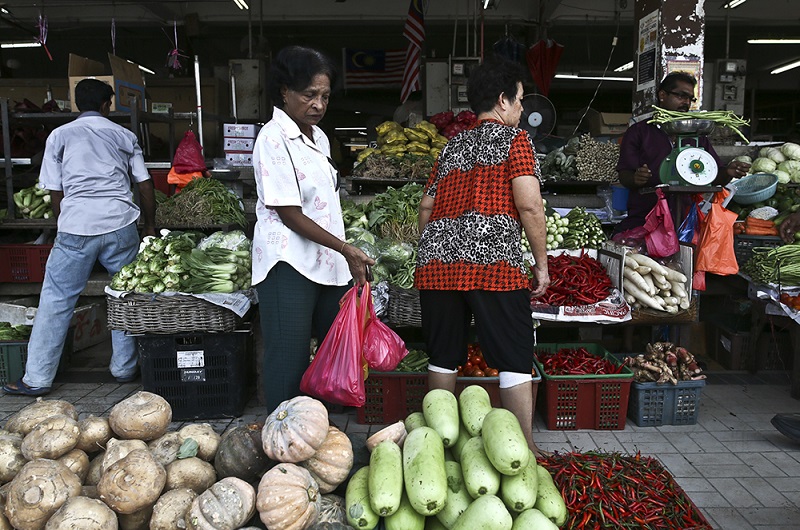KUALA LUMPUR, Nov 28 — Corruption and power abuse, which used to be at the top of people’s concerns in the run up to GE14, has now been relegated to sixth position, according to EMIR Research’s inaugural National Worry Index (NWI).
The research, conducted between September 5 and October 10, polled 1,992 respondents with a 3 per cent margin error. The demographics from the total respondents were 65.6 per cent of Malay and Bumiputera, Chinese 28.2 per cent and Indian 6.2 per cent.
Replacing corruption and power abuse at the top of Malaysians’ worry list were the cost of basic needs (86 per cent), unaffordable homes (86 per cent), lack of job opportunities (77 per cent,) youth unemployment (76 per cent), being in debt to sustain cost of living (76 per cent) and only then came corruption at 75 per cent.
The rest were agriculture subsidies (65 per cent), quality of education (63 per cent) and cost of public health services (63 per cent).
According to EMIR Research, the reasons for this relegation is that Malaysians are tired of the long and tedious process of getting the kleptocrats of the previous regime behind bars and want the government to move on and focus on the economy, which was the highlight of Pakatan Harapan’s (PH) manifesto.
“Out of the many government plans and initiatives that were being spoken about we found almost two thirds or 64 per cent of respondents agreed to combating corruption in government agencies and 57 per cent want clean and efficient policy of civil servants.
“Seventy-one per cent of Malays and Bumiputera were concerned about combating corruption in enforcement agencies, compared to 52 per cent of Chinese and 44 per cent Indians,” said International Islamic University of Malaysia professor Mohamad Sahari Nordin, who led the research team.
For the Chinese, the top three most favoured government initiatives are combating corruption in enforcement agencies (52 per cent), clean and efficient policy for civil servants (50 per cent) and autonomy of Malaysian Anti-Corruption Commission (47 per cent).
The Indians also have combating corruption as the top priority at 44 per cent followed by the teaching of science and mathematics in English (44 per cent) and having clean civil servant policies (36 per cent).
Meanwhile, most of those aged 31 and below agree with the government’s efforts to combat corruption in government agencies with 72 per cent agreeing to it. The lowest percentage came from those aged 51 and above at 53 pe cent.
This was followed by 62 per cent of 31 and below wanting to have a clean and efficient civil servants compared to 52 per cent for those 51 and above.
“These are the indicators that having differential effects because of race. The other items we cannot find many differences meaning regardless of race the findings are consistent,” added Sahari.
“Also the younger group, less than 31 have a higher tendency to be in agreement (with government policies) compared to those in the older group. Maybe they are more conservative and it’s hard to change their minds.”



















